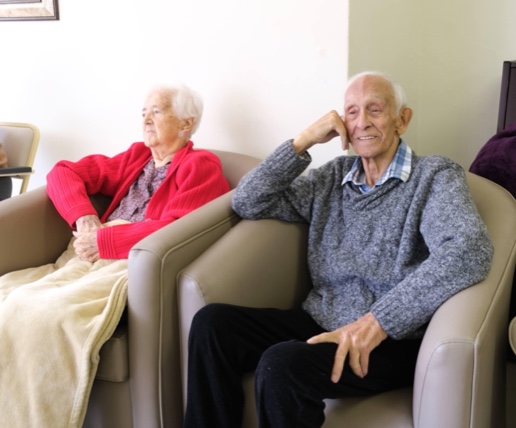
My grandmother came to visit the last weekend before lockdown. Precautions were taken, even then. No kissing, hugging, touching, mixing up glasses – even more difficult than not touching – and keeping a two-meter distance.



Let me tell you a little bit about my grandmother. When my firstborn was two weeks old and introduced to the world, Ouma held him whilst sitting on the edge of the couch. I politely, albeit a bit worriedly, advised that perhaps it would be more comfortable to scoot back a bit to prevent the newborn slipping from her already fragile grip. ‘No, I can’t scoot back, how will I reach my gin?’ This is Ouma, she has the ability to prioritise.
My mother is the eldest of five siblings. When growing up, she says that a bomb would need to explode beside Ouma before she would abandon her book to take notice of children screaming or siblings fighting. It might be age or just that her book was really gripping, but to this day Ouma does not get fazed.
According to generational expert Alexis Abramson, the Silent Generation is best characterised by a strong sense of determination and willpower. They do not try to attract attention or protest, but rather focus on working silently to achieve their goals and sustain living conditions.
Neil Howe, historian and demographer, wrote in Forbes about the Silent Generation:
The Silents ended up in this enviable position thanks to a combination of extraordinary luck and sound behavioural choices. As young adults coming of age after World War II, the Silents were guided by a strong sense of personal risk aversion. They kept their heads down and tried to play by the rules, both in their own lives and as political leaders. They married and had children early – earlier, in fact, than any other generation since at least the Civil War. The typical Silent adult was a stable, well-educated professional in good health.
Like all mothers, Ouma raised her offspring with willpower. She worked in a library, staying quiet and focusing on the job at hand. She is a quiet person too. While always in the midst of conversation, she never takes over. Instead, she contributes gently, keeping the conversation flowing by asking not telling. She is a typical Silent.
During our pre-lockdown visit, one year ago, we spoke about the stock market and the recent sharp fall in the value of most shares. She insisted on investing in a stock she has wanted for years. She even phoned the head of her trust to buy them – on a Saturday. She is nothing if not determined. She understands what is important by distinguishing between serious subject matter and general banter. She prioritises. When given the choice of lunch with the family or isolating (this was before lockdown) – she chose the family. After all, how many more lunches will there be?
Sadly, this is the generation hit hardest by recent events. It’s also the generation most likely to recover. Just take Ouma – she exercises every day. Every. Single. Day. Even during lockdown. 10 000 steps a day. She reads – obviously. She communicates with her five children, numerous grandchildren and lots of great-grandchildren via Facebook, WhatsApp and Facetime etc. She does tapestry and cooks for her neighbours and friends. And of course – she drinks her glass (or two) of vino per day! Here’s to willpower and good health. Cheers to the Silents!
"Courage is what it takes to stand up and speak. Courage is also what it takes to sit down and listen."
- Winston Churchill
- Winston Churchill
According to generational expert Alexis Abramson, the Silent Generation is best characterised by a strong sense of determination and willpower. They do not try to attract attention or protest, but rather focus on working silently to achieve their goals and sustain living conditions. My Ouma is a typical Silent.
